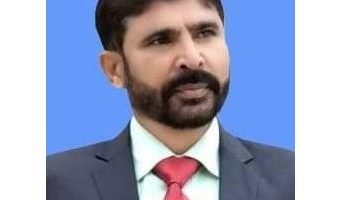Uzbekistan’s Sham Presidential Election
By Muhammad Salih
Uzbek voters knew absolutely nothing. They did not know who to vote for because they did not have any information about the candidates running for parliament. Everything was shrouded in mystery, except the fact that all parties in the race had been founded by state authorities.
Another curious aspect of the Dec. 26 elections was that they were held under an artificial state of emergency. Particular attention was paid to the Ferghana Valley, Bukhara and Samarkand. Ten days before the elections, troops from the Interior Ministry, the Defense Ministry and the National Security Service began regular patrols of these regions. Security forces took full control of all city mosques and public places, supposed potential sites for terrorist attacks. Operations to detain “extremist elements” also took place. So-called suspicious persons were brought into local police stations and booked, or were simply arrested on the spot. These included political activists calling for a boycott of the elections. Arrests occurred across Uzbekistan, and human rights activists and opposition party members were followed, put under house arrest and not allowed to register at the polls, even though the main opposition parties, Erk and Birlik, had been excluded from the race.
There was one person, however, who seemed happy with the elections, namely Vladimir Rushailo, who led the observer mission from the Commonwealth of Independent States. He was so pleased with things that he flew off to Kiev before the polls had even closed. For once, everything went off just as Russia had hoped.
After these farcical elections, Uzbekistan faces yet another period of social and political tension. The regime of Islam Karimov will continue to turn moderate believers into fanatics in whatever quantities needed to keep the regime safe and to scare the West into handing over anti-terrorist aid.
At the same time, Karimov will cozy up with Russia out of fear of the recent revolutions in Georgia and Ukraine. Russia has promised it will try to guarantee that there will be no such revolution in Uzbekistan. However, the situation in the country is growing more and more explosive by the day. People who once feared prison have discovered that a life of freedom in Uzbekistan is not all that different from life behind bars. They no longer fear taking extreme measures.
Yet the Karimov regime’s real enemy is not extremism, but the extreme poverty of the population at large. Real democratic elections could save Uzbekistan from this impending social explosion, but the regime refuses to risk losing power. The West may ignore Uzbekistan’s human rights abuses and Russia may long for a manageable Uzbekistan, but only time will tell how long Karimov can withstand the increasing public discontent and desperation in Uzbekistan.
Muhammad Salih is the head of the Erk Democratic Party of Uzbekistan.
Related News

Russia and the Gentle Weight of History
Dr. Muhammad Akram Zaheer For much of the early post-Soviet period, Russia occupied an uncertainRead More

Optimal Learning: How the Mind Thrives When Pressure Drops
Sabahat Ali We often think learning requires relentless effort, strict deadlines, and high-pressure environments. TheRead More


Comments are Closed